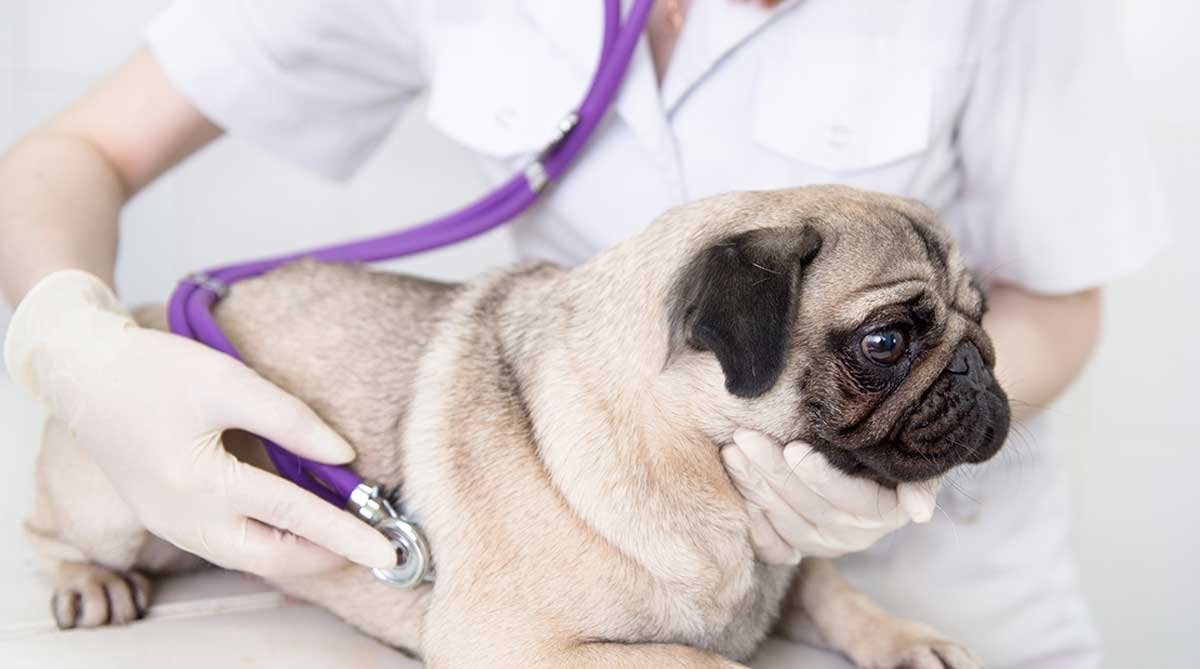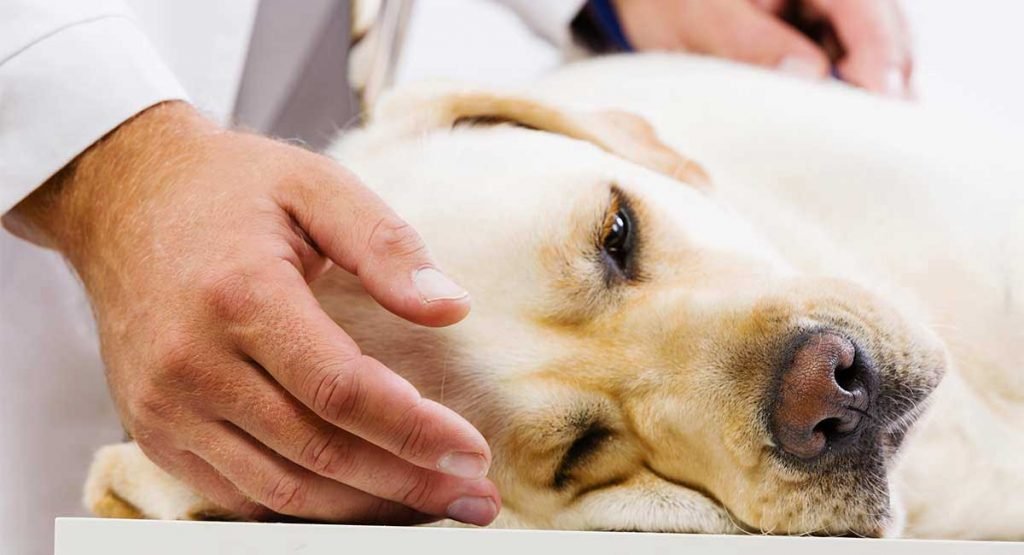Most dogs love getting a meal or a treat, so if your once food-loving dog has suddenly gone off their food, doesn’t have an appetite even when you offer them their favourite treat, and isn’t doing very well with keeping anything that they do eat down for very long, it’s a cause for concern.
The good news is that most of the time, symptoms such as these are usually caused by a short bout of stomach upset because your dog has a bug or has eaten something that they shouldn’t, and it will usually pass within twenty-four hours. However, these symptoms could also signal something more serious like pancreatitis, which will require treatment from your vet.
This condition can often come on suddenly and sometimes passes just as quickly or lingers for some time. It’s a condition that can be very uncomfortable and painful for dogs, so it’s important to have your pet checked by a vet if you suspect that this might be the cause of their appetite loss.
What Causes It?
Although experts are not entirely sure what leads to the condition, which is characterised by an inflammation of the pancreas, there are certain dog breeds that tend to be more prone to it, including schnauzers. Other factors such as age and weight can also increase your dog’s risk of suffering from this condition.
It can also sometimes develop as a side effect of a medication that your dog has been prescribed for a different health condition, or some dogs might develop it after undergoing surgery. However, most of the time, dogs that end up with pancreatitis get it after eating too many high-fat foods like bacon grease, and table scraps. Most dogs will usually recover quickly, but pancreatitis can become more severe in some cases, which can be fatal to the dog.

What are the Symptoms?
Many of the symptoms of pancreatitis are similar to the symptoms that your dog might experience if they have a stomach bug or have eaten something dodgy, like vomiting, stomach pain, and a loss of appetite. Other common symptoms include diarrhoea, difficulty breathing, lethargy, fever, a low body temperature, dehydration, and an irregular heartbeat.
Some of these symptoms may be linked to something less serious, especially if they last for less than a day, but it’s still a good idea to get your dog checked at the vet to rule pancreatitis out. It’s especially important to seek veterinary attention for your dog if they have been experiencing the symptoms for a few days or if symptoms continue returning. Your vet can examine your dog with an ultrasound to check the pancreas and see if it is the cause.
How Is It Treated?
If your dog is diagnosed with pancreatitis, there are several treatment options available. Your vet will first need to determine why your dog has developed this condition in order to make sure that the next steps will work for them. If the pancreatitis is a reaction to another medication, it is likely that your dog will be switched onto something different to manage their other health conditions.
Some dogs develop pancreatitis as a result of their diet, in which case, you may be advised to switch your dog to a different type of food. Raw feeding, which is high in protein, low in grains, and includes healthy fats that your dog needs is often a good choice for dogs that are prone to pancreatitis.
Bella and Duke offer a lot of advice on dealing with pancreatitis in dogs, what causes pancreatitis in dogs and how your dog’s diet can help prevent it. You can order tailor-made, tasty raw dog food meals online from Bella and Duke to make sure that your pet is getting the best nutrients for a healthy life.
At the vet, your dog may be given a new feeding plan for the first few days, which might involve only giving your dog water for the next twenty-four hours. Some dogs might be given IV fluids at the vet to help with dehydration and pain medication will typically be prescribed to give to your dog at home.
How Is It Prevented?
Pancreatitis definitely does not sound like a pleasant experience for your precious dog to go through, so you will probably want to know more about how this condition can be prevented. If your dog is at a higher risk of developing pancreatitis due to their breed or age, it’s important to keep a careful eye on their health and make sure that you are feeding them a suitable diet.
If your dog is overweight, their risk of developing this condition is higher, so it is a good idea to take steps to help them lose weight, including feeding them a well-balanced diet high in nutrients, limiting treats, banning human food, and making sure that they get plenty of exercise.
Since pancreatitis is often caused by your dog eating too many high-fat foods, be sure to keep them away from the table at dinner times and make sure that the whole family knows not to offer the dog any fatty scraps of meat or other leftovers. If your dog is the type to rummage through the bins to look for a snack, make sure that they are out of his reach.
How to Care for a Dog With Pancreatitis:
If your dog has been diagnosed with pancreatitis, you will want to make sure that they are as comfortable and as happy as possible. Your dog may be treated immediately at the vet or the vet may want to keep him in the animal hospital for a while, depending on the severity of the condition, the symptoms, and whether or not your dog has any underlying health conditions that might also be affected. Once you are home with your dog, there are several things that you can do to make her more comfortable and ensure a quick recovery.
Make sure that your dog always has access to clean, fresh water to stay hydrated; this is especially important if they are experiencing symptoms like vomiting and diarrhoea since this can cause dehydration quickly. Make sure to administer any medication that you are prescribed from the vet. Vets will often give anti-inflammatory medication and anti-sickness medication to help ease the symptoms and make your dog more comfortable. If your dog’s appetite has perked up a little, feed her plain foods that are easy on the stomach like chicken with boiled rice.
Your dog will probably not feel like walking while suffering from pancreatitis, so it’s important to keep an eye on her progress and take small steps to get back to normal if you think that your dog is up to it. Dogs might feel weaker and more tired after suffering from pancreatitis, so it might be necessary to go for shorter walks at first once your dog has begun recovering, to help them get back into their everyday routine.
Pancreatitis is caused by an inflammation of the pancreas in dogs. It can be a result of medication or surgery but is most commonly caused by eating too many fatty foods. Understanding how to recognise, treat and prevent this condition is important.

